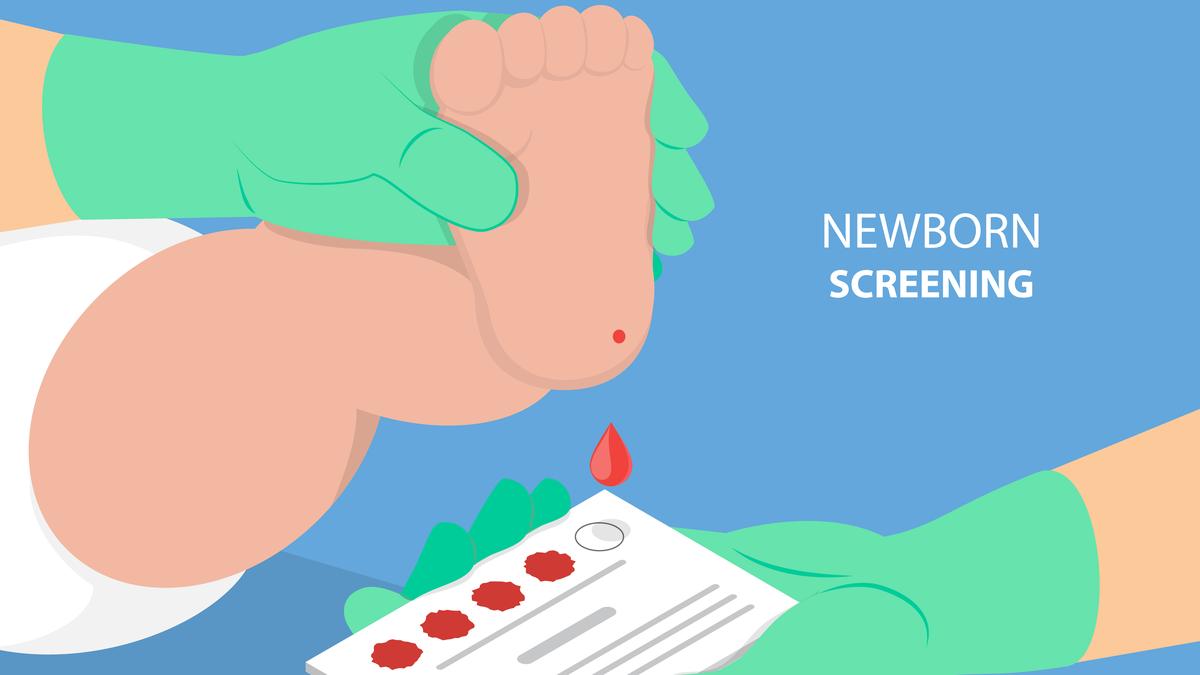
Taking newborn screening, as a birth right, ahead in Karnataka Premium
The Hindu
Newborn screening is a fundamental right for every child, crucial for early diagnosis and intervention of preventable conditions.
Denying a child timely treatment for a condition that could lead to lifelong mental or physical disability is nothing short of societal failure. Newborn screening (NBS) is every child’s birthright, a promise of early diagnosis and intervention for conditions that are preventable.
Take congenital hypothyroidism, a disease that can cause severe mental retardation if undetected — yet, if caught within 72 hours of birth, it can be managed with tablets costing just 15 paise each. With this simple, cost-effective treatment, a child can thrive, achieve their full potential and a normal life. It’s time we recognise NBS not as a privilege, but as a fundamental right for every newborn.
NBS is a public health programme that helps in identifying serious developmental and genetic disorders in newborns through biochemical tests conducted after birth. NBS usually encompasses physical examination (eyes, heart, hips, etc.), hearing screening, and blood spot (heel prick) test. To detect diseases in a pre-symptomatic stage, a bloodspot test is undertaken whereby blood is collected from the baby’s heel, placed on a special absorbent paper, air dried and then transported to the laboratory for screening.
Despite NBS being endorsed by the WHO through its Resolution on Birth Defects in 2010, and institutionalised as a national programme in the developed world, most of the developing nations, including India, have lagged behind in providing universal NBS services. The National Child Healthcare Programme –Rashtriya Bal Swasthya Karyakram recommends screening for diseases such as Congenital Hypothyroidism (CH), Sickle Cell Anemia and beta-Thalassemia on an optional basis (an exception being Mission NEEV in Delhi). However only few states and UTs: Goa, Chandigarh, Delhi, Kerala have implemented NBS so far.
One of the earliest attempts of a large scale pilot NBS was undertaken by the Indian Institute of Science (IISc), Bangalore, Karnataka for eight years from 1980-1988 to screen for amino acidemias. This study screened close to a lakh neonates using toe-stab blood samples in fifty hospitals and maternal homes across Bangalore & Mysore. They found a cumulative incidence of 1:847 of different types of amino acidemias, and further explored linkages between consanguineous marriages and the occurrence of these disease conditions. Decades later, we still find the continued prevalence of consanguineous marriages at 27% in Karnataka from the NFHS-5 report ().
Karnataka yet doesnt have a public health program of NBS despite the early start and high rates of institutional delivery at public health facilities (64.8%), The idea of NBS in the government sector remains limited to screening for physical deformities, vision and hearing tests. Private health facilities and laboratories offer commercial NB bloodspot screening services charging somewhere between ₹1500 to ₹6000 for NBS panels (basic to comprehensive covering 50+ disease conditions/parameters). It is important to expand free NBS services at all delivery points in public health facilities.
Being one of the prerequisites towards launching a state-wide public health programme, the absence of epidemiological data on context-specific genetic conditions precludes NBS from receiving the attention that it truly deserves. Recent hospital-based studies from the state report varying levels of incidence of different genetic conditions. The incidence of IEMs such as Congenital Hypothyroidism (CH), Congenital Adrenal Hyperplasia (CAH), G-6PD deficiency, Galactosemia (GALT) and PKU was found to be 1:2735, 1:4102, 1:414, 1:41027 and 1:20513 respectively in a government hospital. Another study estimated the cumulative incidence rates of CH, CAH, G-6PDD, Biotinidase Deficiency, and GALT across different hospitals in Udupi district to be 1:811, 1:2009, 1:932, 1:1475 and 1:1340 respectively.











